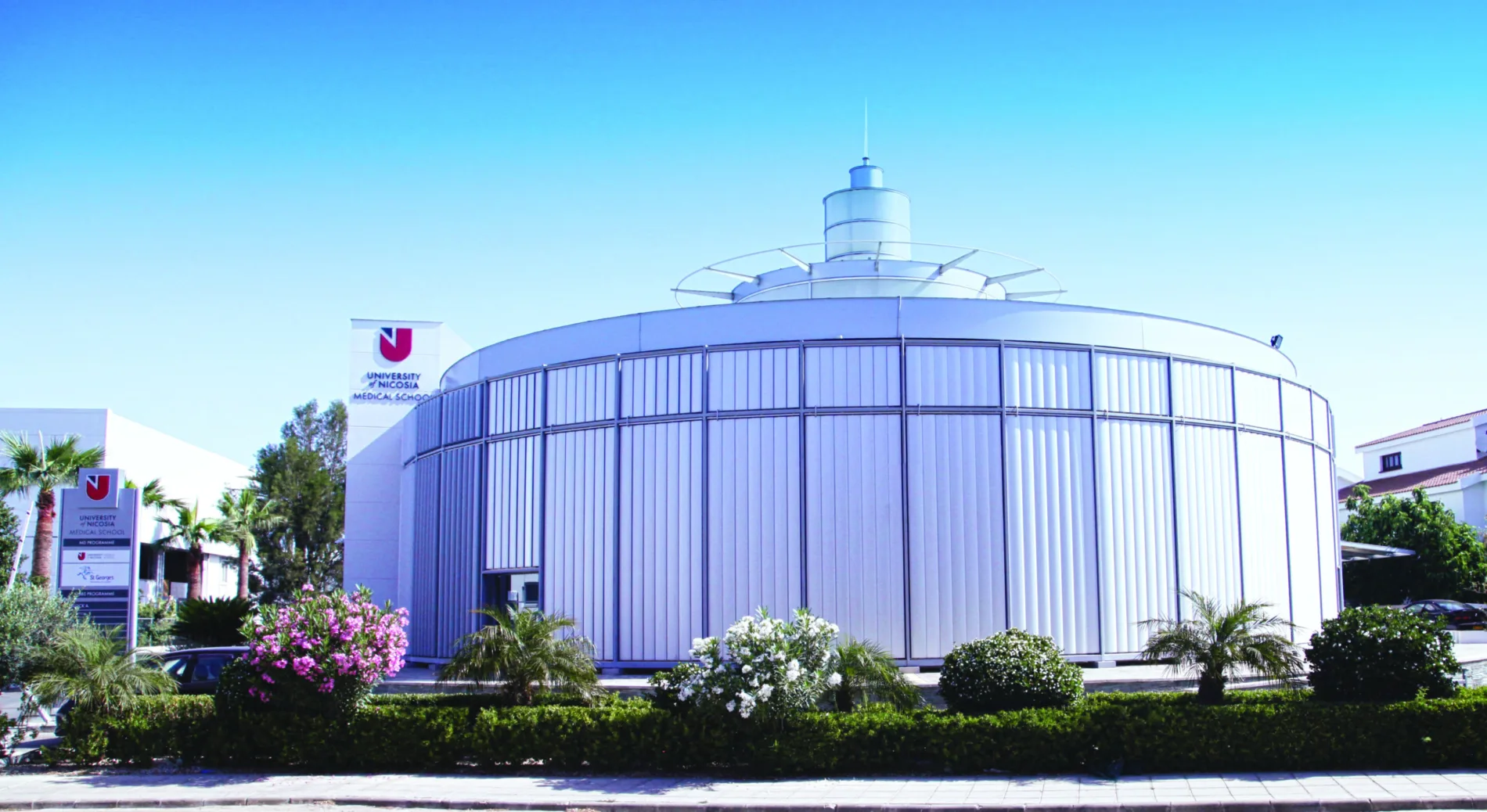The PhD in Medical Sciences:
The University of Nicosia Medical School offers the degree PhD in Medical Sciences. The degree is awarded to students who successfully complete an independent research programme that breaks new ground in the chosen field of study. The PhD programme aspires to empower students to become independent researchers, thus advancing innovation and development.
The Research Project:
We are currently inviting application through a competitive process for high calibre candidates to apply for one PhD Scholarship in the field of Human Genetics. The project will take place as part of a collaboration agreement between the University of Nicosia Medical School and NIPD Genetics (https://www.nipd.com) and will be carried out at the premises of the NIPD Genetics Laboratories. The successful candidate will enrol on the PhD programme in Medical Sciences and will work under the Supervision of Philippos Patsalis, Professor of Human Genetics at the University of Nicosia Medical School.
Project description: Development and application of new genetic approaches for molecular characterization of cancer and selection of targeted therapy.
We have recently completed the development of tissue biopsy NGS panels which include seven comprehensive tumour profile panels and five therapy-associated tumour profile panels. These panels are currently used in clinical practice as complementary diagnostics. The first part of the project will include optimization and improvement of the existing panels utilizing NIPD Genetics’ targeted capture enrichment technology. The successful candidate will perform extensive research on the updated guidelines in order to incorporate additional targets to cover variants that have shown clinical utility (i.e. therapy association, prognosis, diagnosis). The second part of the project will include major improvement of the tissue biopsy testing with the incorporation of tumour biomarkers for immunotherapy response in cancer patients. Such biomarkers include the microsatellite instability (MSI) and tumour mutational burden (TMB). This part of the study will involve the development and validation of MSI and TMB in tissue biopsy samples. Extensive review of the literature will provide the necessary tools for the successful candidate to select the specific cancer types and genomic locations where MSI and TMB takes place. Liquid Biopsy test(s) is a non-invasive test that will detect specific circulating tumour DNA mutations at a very low frequency (<0.1%) in plasma samples. In line with the tumour biopsy panels, the somatic variants targeted by the liquid biopsy test(s) are carefully selected to provide guidance to therapy, prognostic information, monitoring of therapy, detection of minimal residual disease and relapse. In the final stage of the proposed study, the PhD candidate will apply liquid biopsy testing in a cohort of cancer patients. The aim will be to compare the mutational profile of the tumour versus the molecular profile of the ctDNA. In addition, when applicable, sequential liquid biopsy tests will be performed for selected patients throughout treatment to monitor tumour evolution and detection of mutations with therapy resistance. Correlation of molecular data with clinical data (depending on availability) such as imaging data (e.g. MRI, PET scan, CT-scan) and/or biochemical markers (e.g. CA-125, CEA, CA 19-9) will be performed to establish sensitivity of the liquid biopsy assay compared with other diagnostic tests.
The Scholarship:
The Scholarship will have a duration of three to four years and will cover:
- The tuition fees for the PhD programme which are €13,500 for the first 3 years and €1,500 for year 4.
- A monthly stipend of €1,000 for the duration of three to four years.
- The laboratory expenses will be covered by
as part of a funded research project.
Requirements and Qualifications:
- Eligible Candidates should hold (or hold by the time that the programme is expected to commence i.e. September 2020) a recognised degree (a Bachelor’s degree or a degree equivalent for entry to a Master’s Degree) and a Master’s degree or a Doctor of Medicine degree (e.g. MBBS or MD degree).
Application for the PhD Scholarship:
Candidates should submit an online application through the link: https://www.med.unic.ac.cy/education/phd-in-medical-sciences/ and attach the following supporting documents:
- A cover letter clearly stating that they apply for the PhD Scholarship in Human Cancer Genetics.
- Copies of the applicant’s qualifications/degree(s) – the application can be assessed with scanned copies, but certified true copies must be provided if the candidate is successful and prior to enrolment on the PhD programme.
- Copies of the applicant’s transcript(s) – the application can be assessed with scanned copies, but certified true copies must be provided if the candidate is successful and prior to enrolment on the PhD programme.
- Proof of English language proficiency: the candidate should either complete previous degree(s) in an English-speaking country or should have passed IELTS (score of 7 overall, with a minimum score of 7 in writing) or should have achieved an equivalent score in an internationally recognized English language qualification.
- Two reference letters, of which at least one should be from an academic.
- A full Curriculum Vitae (CV).
Applications should be submitted online by Friday, 31 July 2020 at 5pm. Only fully completed applications, containing all necessary supporting documents and with application fee paid will be reviewed.
Only candidates who are shortlisted will be contacted and invited to an interview.

